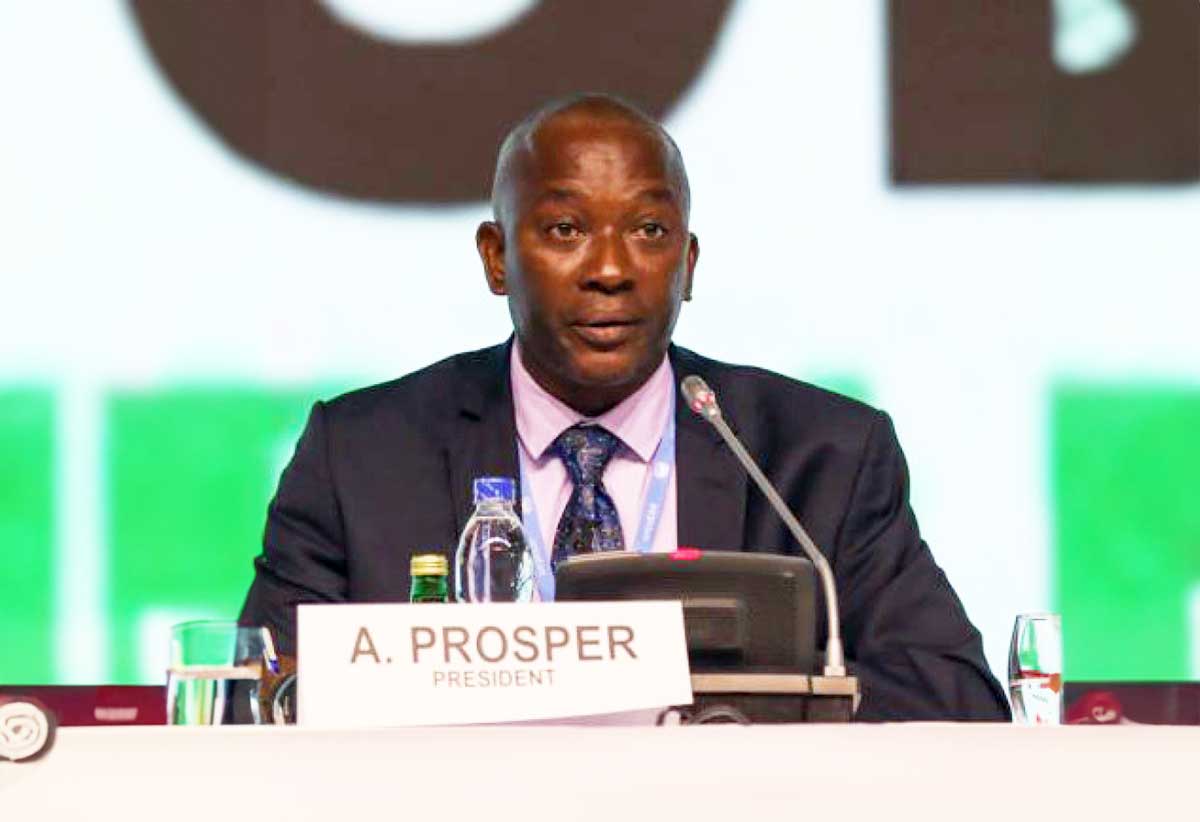
The Caribbean Community (CARICOM) is determined to lower the region’s food import bill by 25 percent next year with a vision called ’25 by 2025′, however, Agricultural Minister Alfred Prospere, on Monday, told reporters he doesn’t think this is feasible.
This is due to the immense challenges that the agricultural sector faces, the minister said, including those the Caribbean Community did not anticipate.
’25 by 2025′, promoted by CARICOM, is a long term social and economic partnership between Member States, the regional private sector, regional organizations, producer groups, development partners and civil society which outlines actions and areas of intervention to tackle the region’s rising food import bill, improve intra-regional trade, and create wealth and economic opportunity for every CARICOM Member State. (According to CARICOM Secretary-General, Dr Carla Barnett, from 2018-2020, CARICOM’s food import bill was US$13.76 billion or approximately 5% of GDP.)
The Special Ministerial Taskforce on Food Production and Food Security guides the implementation of ‘25 by 2025’ and is made up of Agricultural Ministers throughout the region who meet monthly to provide guidance on the transformation of the agri-food system.
At Monday’s pre-Cabinet press briefing, the minister told reporters that he had visited St Vincent recently to attend ‘Caribbean Week of Agriculture’. That forum highlighted a number of critical issues affecting the sector.
“I’m sure you’ve been hearing the term 25 by 2025. It means that we are supposed to be reducing our food import bill by25% next year but you’d understand the challenges that climate change has been having on the agricultural sector,” he said.
According to him, Caribbean Week of Agriculture which was held early this month, brought Ministers of Agriculture together, policymakers, the private sector, and key stakeholders like the Food and Agriculture Organization, “and one of the areas that we focused on was the whole issue of climate change and how it is impacting the sector.”
“As we speak there are countries (that) have not been able to export much of (their) commodities like usual because of the devastating effect that Hurricane Beryl had on those countries especially with regards to the agricultural sector. We have to take major decisions in terms of how we address that problem. We discussed a number of areas like agricultural insurance because what you find after a hurricane or storm has impacted the sector is that it can be very demotivating to our farmers,” he explained.
“With our farmers (not having) agricultural insurance in the region, it’s causing serious problems for those farmers who suffer major losses and very often it takes the government of those countries to compensate farmers and fishers. The CARICOM Ministers of Agriculture had a number of meetings in St Vincent and we came up with a plan to chart a way forward to be able to deal with the sector,” the minister added.
But is Saint Lucia playing its part to assist with ‘25 by 2025’? And if so, will it make any difference?
“All the countries are playing their part. The part that we play is to increase our production but our production cannot only be increased in watermelons, cucumbers and sweet peppers, we have to increase it in all of the basic commodities and we need to have a year-round production level that may even allow us to export the excess. We are doing that but there are challenges, challenges we have no control of like climate change,” he said.
The minister added that “We want to achieve that target which I know based on (the discussions) in St Vincent, (but) we may not be able to achieve that target because of all those challenges that we did not anticipate.”
But with technologies in place to assist countries with climate change, why then is CARICOM still at this point?
In a nutshell, “the technologies cost money,” the minister stated.
Locally, data collection is also an issue. In fact, it is a “major problem”, he said.
“Our food production is (sometimes) extremely high but now you would go to supermarkets and see little or no bananas simply because we had Hurricane Beryl… (as) these plants are very vulnerable to strong winds. That is why the Seven Crops Project under the Taiwanese was implemented to help Saint Lucia address the problem, but so far, I do not think we have achieved much in terms of the target because the data is not forthcoming,” Prospere said, noting that farmers do not willingly provide the information at times, as well as his Ministry.
Last week, the island hosted a major food festival in Dennery in observance of World Food Day.
“This year the theme is ‘Right to foods for a better life and a better future’ and that speaks to the importance of access to food and not just (any) food but nutritious food. A healthy nation is very important for the future development of any country and so we had persons coming from Guyana, Cuba (etc.), displaying a range of products made from our local commodities,” Minister Prospere said.



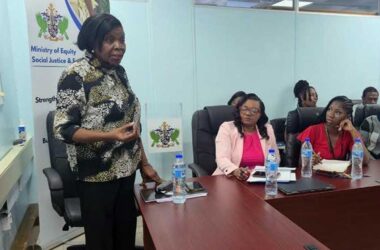

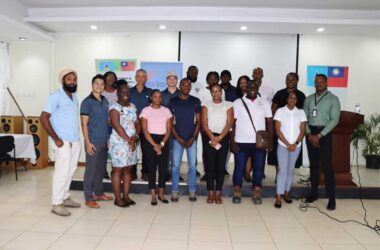
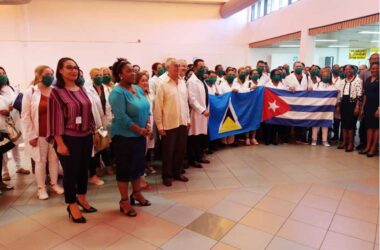
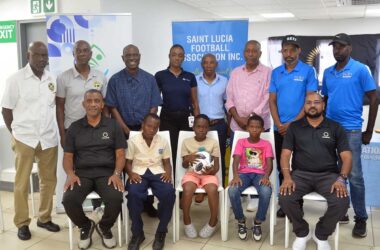

![Sports Minister Casimir presents sporting equipment to SLAA officials [Photo credit: MYDS]](https://thevoiceslu.com/wp-content/uploads/2026/01/Sports-Minister-Casimir-presents-sporting-equipment-380x250.jpg)


![Amy Stephen [Photo credit: Community Tourism Agency]](https://thevoiceslu.com/wp-content/uploads/2026/01/Amy-Stephen-feat-380x250.jpg)
